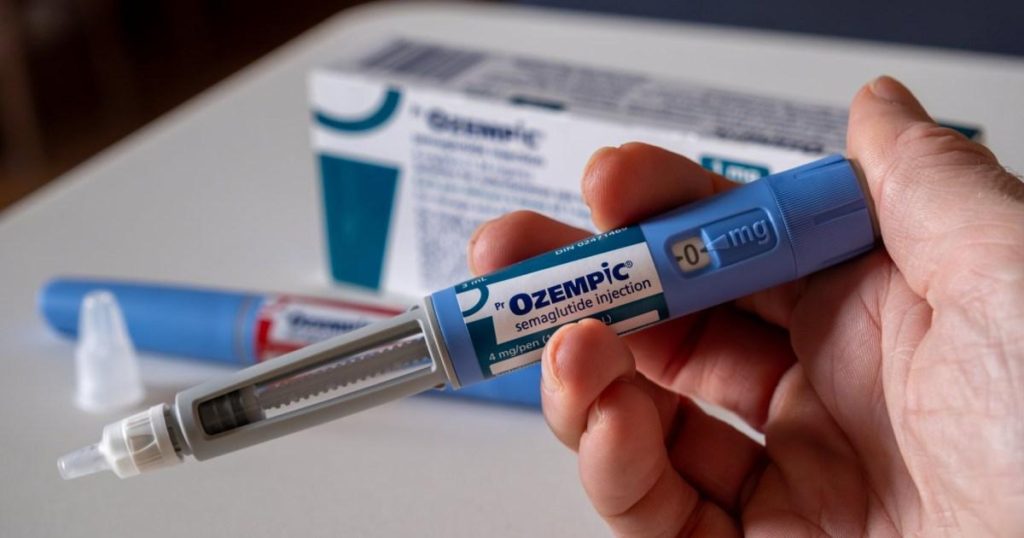The Rise and Fall of a Black Market Ozempic Scheme
Akshay Sennik, a 30-year-old pharmacist, has found himself embroiled in a legal battle after orchestrating a scheme to steal and sell Ozempic, a highly sought-after weight loss drug. Employed at New Cross Pharmacy in southeast London, Sennik exploited his position to pilfer supplies of the medication between September 2023 and March 2024. His illicit side hustle, which involved selling the stolen Ozempic on the black market, unraveled when pharmacy staff noticed a significant discrepancy in their stock. Sennik pleaded guilty in November 2024 to one count of theft by an employee at Bexley Magistrates Court and now faces a potential sentence of up to two years in prison. While the precise value of the stolen Ozempic remains undisclosed, each dose of the drug is estimated to be worth approximately £175, suggesting a potentially substantial profit for Sennik.
This case marks a significant milestone, representing the first recorded instance of an individual being charged with the theft of Ozempic. The drug, only available in the UK with a prescription, was initially developed to treat type 2 diabetes. Its weight loss properties were discovered during clinical trials, leading to its introduction to the UK market in September 2023. Ozempic works by suppressing appetite, and it can be prescribed as a standalone treatment for patients unable to tolerate metformin, another common diabetes medication. Alternatively, it can be used in conjunction with other diabetes medications as an additional therapy.
Sennik’s actions highlight the growing demand for Ozempic, particularly amongst individuals seeking a quick fix for weight loss. This demand has, unfortunately, created a fertile ground for black market activities, as evidenced by Sennik’s opportunistic theft. The high price of Ozempic, coupled with its limited availability through prescription only, makes it an attractive target for illegal distribution. This case serves as a stark reminder of the potential consequences of engaging in such activities, both for the individual perpetrator and for the patients who may be inadvertently purchasing stolen or counterfeit medication.
The theft of Ozempic also raises concerns about the potential disruption to the supply chain for legitimate patients who rely on the drug to manage their diabetes. As the drug’s popularity for weight loss continues to grow, there is a risk of shortages, making it difficult for those who genuinely need it for medical reasons to access the medication. Furthermore, the black market trade in Ozempic could potentially lead to the circulation of counterfeit or adulterated versions of the drug, posing serious health risks to unsuspecting buyers.
Sennik’s case underscores the need for stricter regulations and monitoring within the pharmaceutical industry to prevent the theft and illegal distribution of prescription medications. Pharmacies and other healthcare facilities must implement robust inventory control measures and security protocols to safeguard against such incidents. Increased vigilance and reporting of suspicious activity are also crucial in combating this growing problem. This incident should serve as a wake-up call for the healthcare system to address the vulnerabilities that allow individuals like Sennik to exploit their positions for personal gain.
This case also highlights the ethical implications surrounding the off-label use of prescription medications. While Ozempic has proven effective for weight loss, its primary purpose remains the treatment of type 2 diabetes. The increasing demand for the drug for weight loss purposes raises questions about the prioritization of resources and the potential for diverting medication away from those who need it most. Healthcare providers must carefully consider the ethical implications when prescribing Ozempic for off-label use and ensure that patients are fully informed of the risks and benefits. It is essential to strike a balance between meeting the needs of individuals seeking weight loss solutions and ensuring equitable access to essential medications for those with chronic conditions like diabetes.











